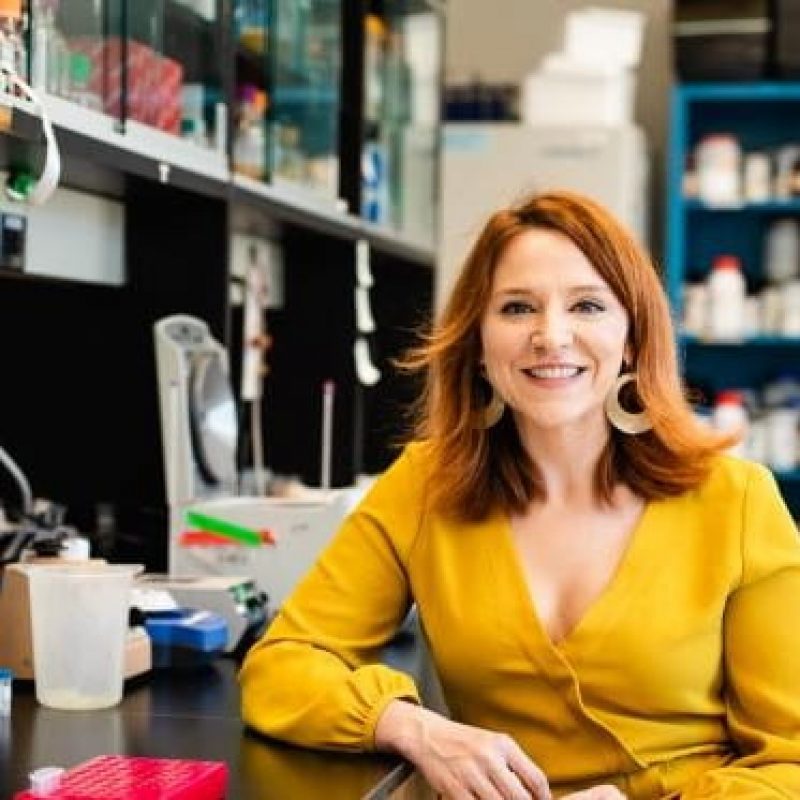Research Area: Agriculture Research
-

Rebecca Nelson
We study disease resistance in maize and sorghum with a substantial focus on fungal pathogens that produce toxins and cause large-scale food system contamination. We work at scales ranging from a single nucleotide (which genetic variations provide quantitative resistance) to whole-plant phenotypes (looking at tradeoffs[...] -

Gregory Martin
The Martin lab studies the molecular bases of bacterial infection processes and the plant immune system. Our research focuses on speck disease caused by the bacterial pathogen Pseudomonas syringae pv. tomato. We use diverse experimental methods in biochemistry, bioinformatics, cell biology, forward and reverse genetics, genomics, molecular[...] -

Jenny Kao-Kniffin
The goal of the Kao-Kniffin Lab is to understand the functional role of rhizosphere microbiomes in modifying plant traits. The rhizosphere harbors a tremendous diversity of soil microorganisms that enhance or inhibit plant growth. We are applying concepts in ecology and evolution to assemble microbiomes[...] -

Tory Hendry
The Hendry lab studies how environmental bacteria interact with insect hosts. Our main focus is understanding how plant-associated bacteria influence the health and behavior of insect herbivores. Students will design mesocosm experiments with culturable bacteria growing on plants and herbivorous insects, using skills in bacteriology[...] -

John Helmann
We use Bacillus subtilis as a model system to characterize the bacterial stress responses elicited by metal ion limitation and excess during infection, and by host-produced antibiotics that interfere with integrity of the cell envelope. The resulting insights are relevant for understanding the mechanisms that allow bacterial[...] -

Michelle Heck
Our research uses a combination of molecular, genetic, and proteomics approaches to understand how insects transmit plant pathogens and how pathogens manipulate host plants to ensure replication and transmission. For instance, students will characterize the transmission rates of viruses by different genotypes of aphids in[...] -

Maria Harrison
Most flowering plants develop mutualistic symbioses with arbuscular mycorrhizal (AM) fungi to improve access to essential mineral nutrients. The fungal endosymbionts are housed in membrane-bound compartments within root cells. Our research combines genetic, genomic and cell biology approaches to dissect the plant and fungal cellular[...] -

Clare Casteel
Numerous studies demonstrate that vector-borne pathogens influence host characteristics, resulting in altered host-vector interactions and enhanced transmission. We seek to determine the molecular mechanisms that underlie this phenomenon and use this knowledge to develop innovative control strategies using genetic and biochemical approaches. Current focuses are[...] -

Dan Buckley
My research program explores soil microbiome dynamics and their impacts on ecosystem and plant health. Students will use genomics and culture-based experiments to understand how soil bacteria response to plant root exudates. They will gain skills in microbiology and bioinformatics, and learn concepts in community[...] -

Gary Blissard
The Blissard lab addresses fundamental questions on the biology and pathology of virus-insect interactions. A primary focus is the study of viral envelope glycoproteins and their interactions with host insect cells and cell proteins during viral entry and egress. Another focus are is understanding the[...]
